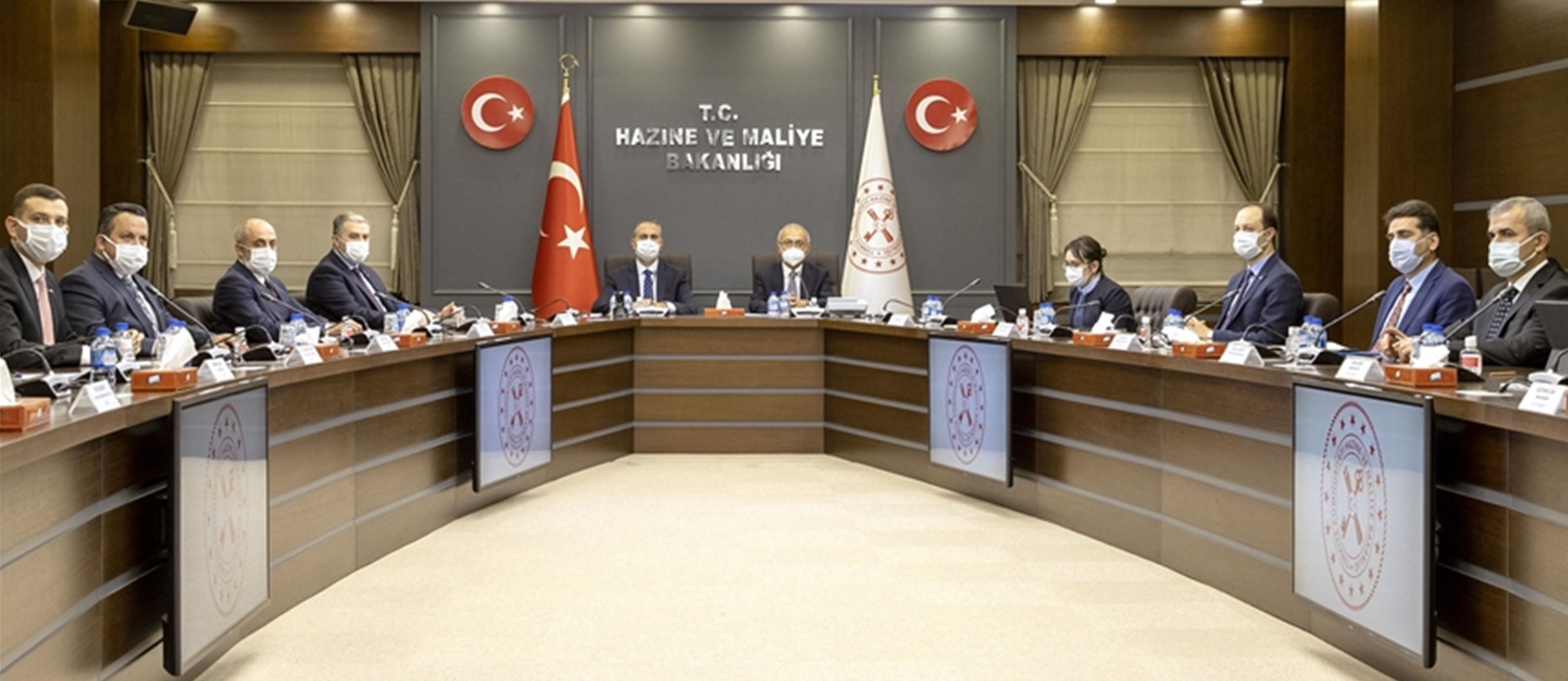Abdurrahman Kaan, Chairman of the Independent Industrialists' and Businessmen's Association (MÜSİAD), made a press statement following the Structural Reforms Meeting. Kaan emphasized the importance of the reform initiative for the business community, stating the following in his statement:
TURKEY'S PRODUCTION POWER IS READY TO RETURN THE WHEEL WITH ENTHUSIASTICITY
“First of all, I would like to emphasize that we attach great importance to the reform initiative initiated by the business community, aimed at ensuring that our country returns to growth and seizes this opportunity during a period when the global economy continues its contraction trend under the harsh conditions of the pandemic. The conviction I have gained during my domestic travels and international branch visits during my presidency, including during the pandemic, demonstrates that our production power is, in fact, ready to resume the wheels with enthusiasm, provided the necessary conditions are met. Indeed, the contribution of the manufacturing industry and the increase in fixed capital investments detailed in the latest growth figures are encouraging in this regard.
Significant shifts in our fundamental production and investment paradigms are essential now, especially for our country to find a significant place in terms of both supply and logistics networks within the new economic structure that will emerge after the pandemic. Therefore, the Ministries of Treasury, Finance, and Justice I would like to emphasize that, as MÜSİAD, we support this structural reform movement, initiated by our President Recep Tayyip Erdoğan. I also declare that we will support this reform movement with all our resources and projects. Long-Term Solutions Are Necessary to Achieve the Desired Impact
"We have obtained field information from all our branches, representatives, and members. We have categorized this information under the headings of working life, financing, taxes and payments, the legal environment, sectoral demands, food, agriculture, and livestock farming.
However, this time, what Turkey needs is not micro-regulations but rather a mental transformation and, in particular, a paradigm shift that will encourage synchronization in the investment-production-trade continuum. Therefore, we believe that short-term solutions will no longer have the desired impact on capital, labor, and raw material markets.
We have fundamentally divided our suggestions and requests into two categories: macro- and micro-scale regulations.
Using the advantage of our field presence, we have collected data from the nerve endings of the economy. At the macro level, we have addressed issues such as how the growth components of the Turkish economy should be shaped in its current state, how fixed capital investments should be increased, and the re-establishment of the economic and legal framework that will attract foreign investors to Turkey.
Turkey's future We emphasized the need for an economic paradigm shift, which necessitates greater caution and more selective action in the areas of capital, incentives, and entrepreneurial productivity.
Based on the understanding that evolving capital into investment and capital stock, rather than wealth, will ensure a more resilient structure for both our companies and our state budget in difficult times, we discussed the need for effective project management.
We emphasized that the private sector should take the burden of capital stock creation off the state's shoulders and directly participate in the system through project-based partnerships.
It was emphasized that direct investments should be supported alongside hot money inflows to restore reserves to the desired level. It was stated that direct investments in this country should not be concentrated solely in the service sector or be undertaken through direct company acquisitions.
Falling Inflation Will Provide Economic Relief
“The ranking of the ease of doing business index should be redefined to increase interest in SMEs, especially from foreigners. This can be described as exporting companies.
Expanding SME Incubation Centers and ensuring that SMEs benefit more from incentive systems. It is undeniable that national investments in high-value-added sectors, especially in our key sectors, will contribute to our price stability policy, especially in the medium and long term. In this process, encouraging investment not only for companies that benefit from their size but also for our SMEs, the driving force of the Turkish economy, and improving factors that negatively impact their appetite for investment, especially location and access to financing, will not only enable them to grow over time and reach much higher volume production capacities but will also positively impact our employment policies.
Furthermore: Simplifying incentive, exchange rate, and tax systems, supporting urban economies, and implementing a real estate devaluation system to recover dead capital. to be prevented, the financial savings system should be enacted immediately and the market

